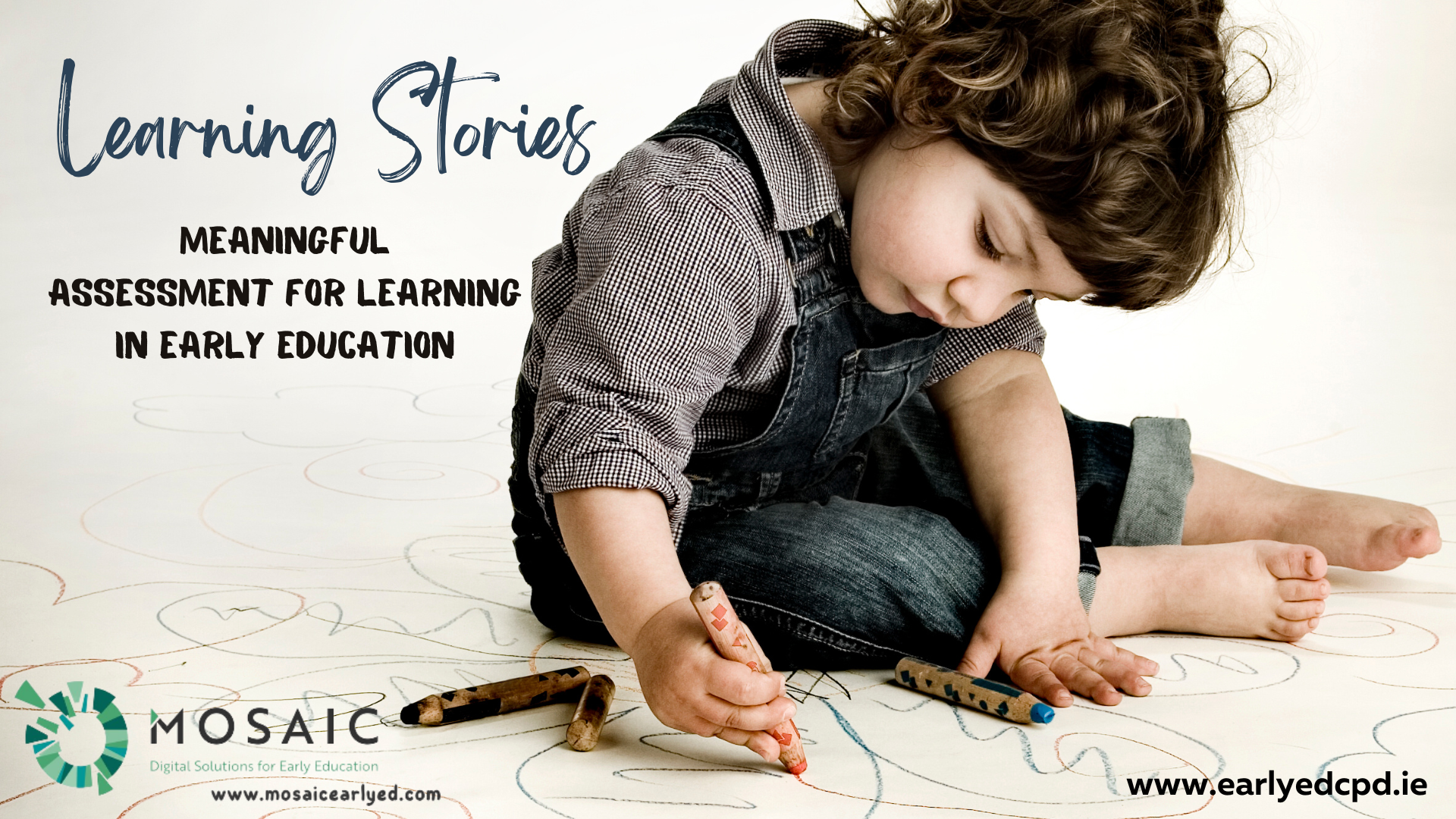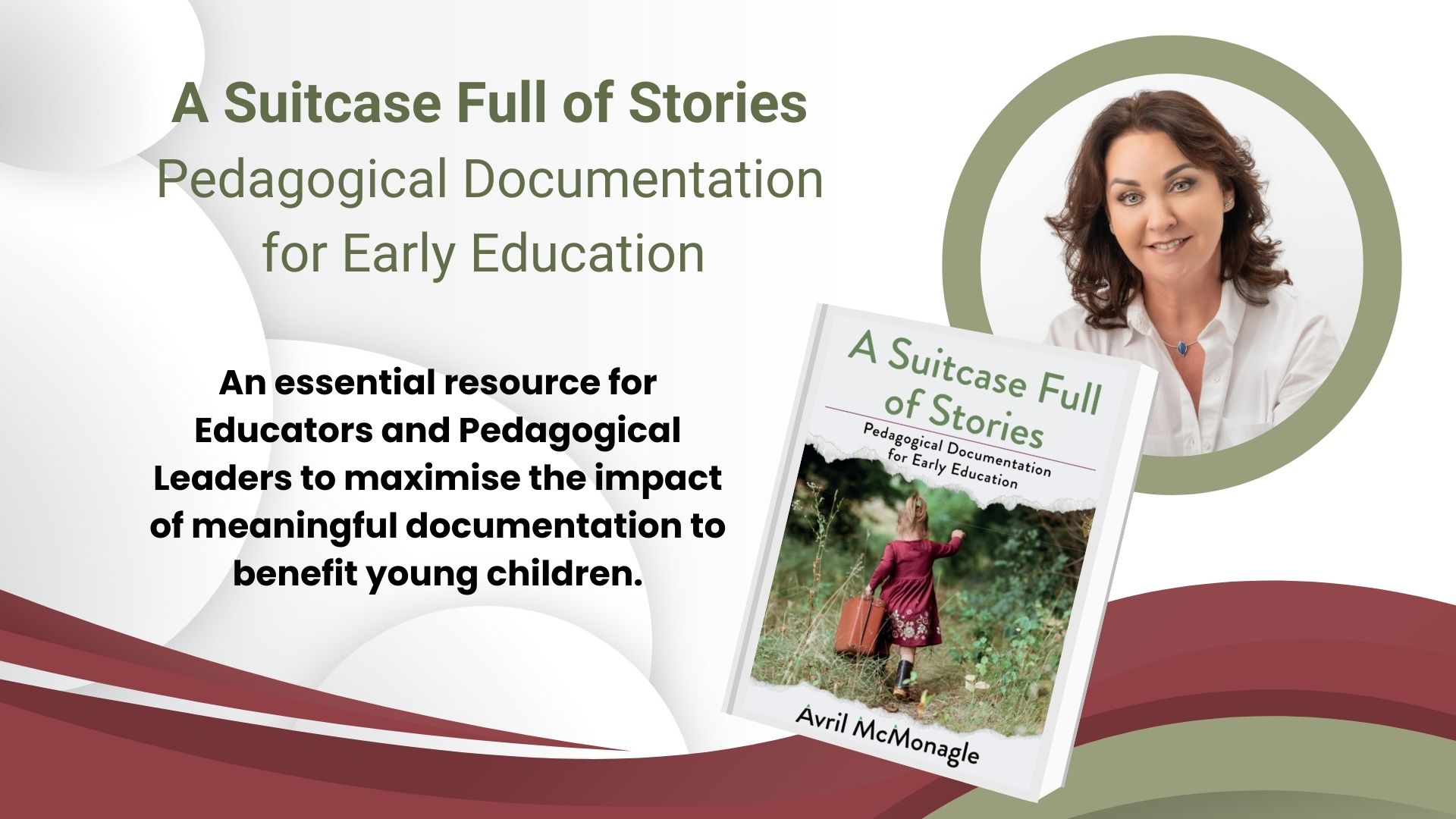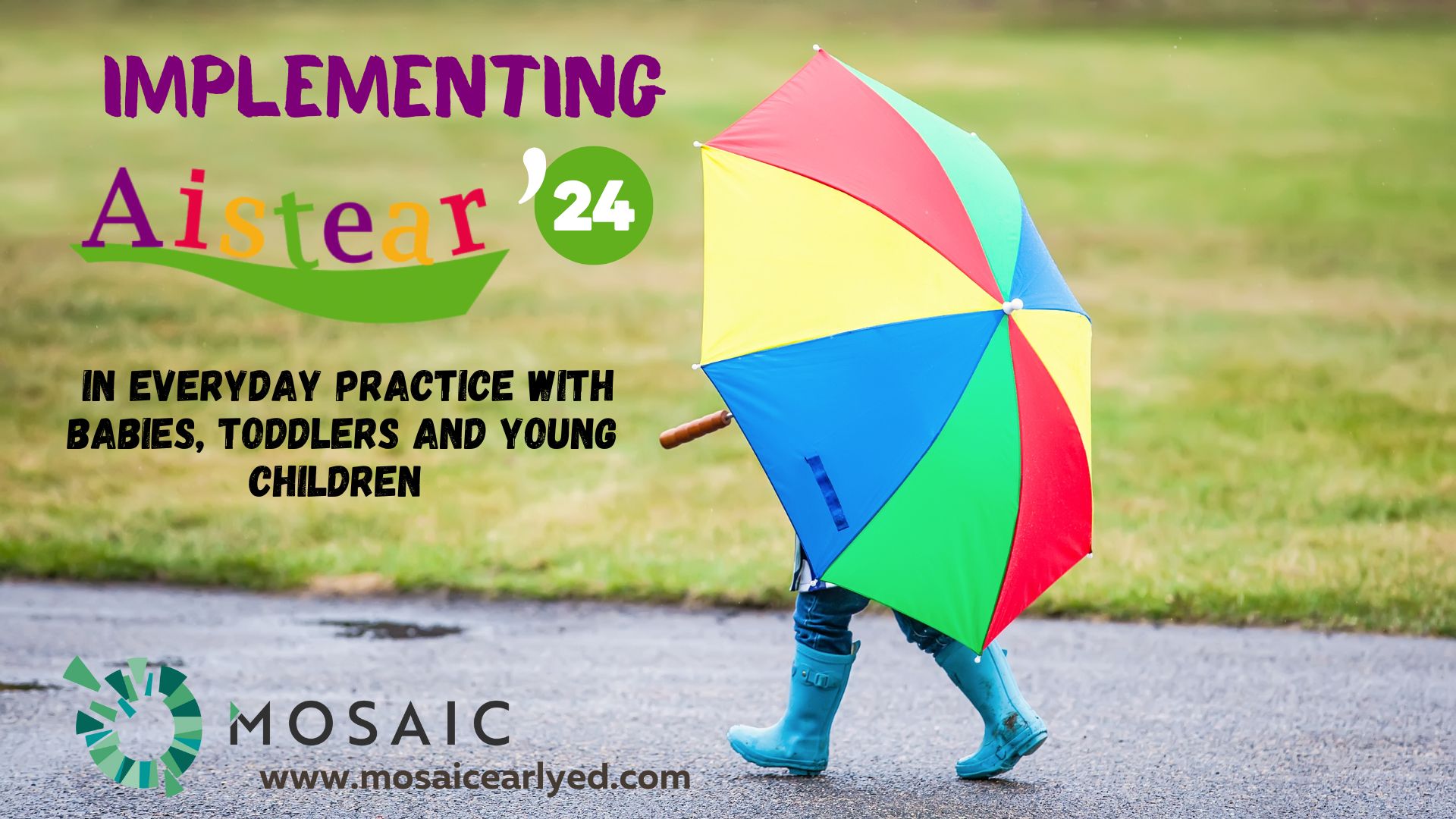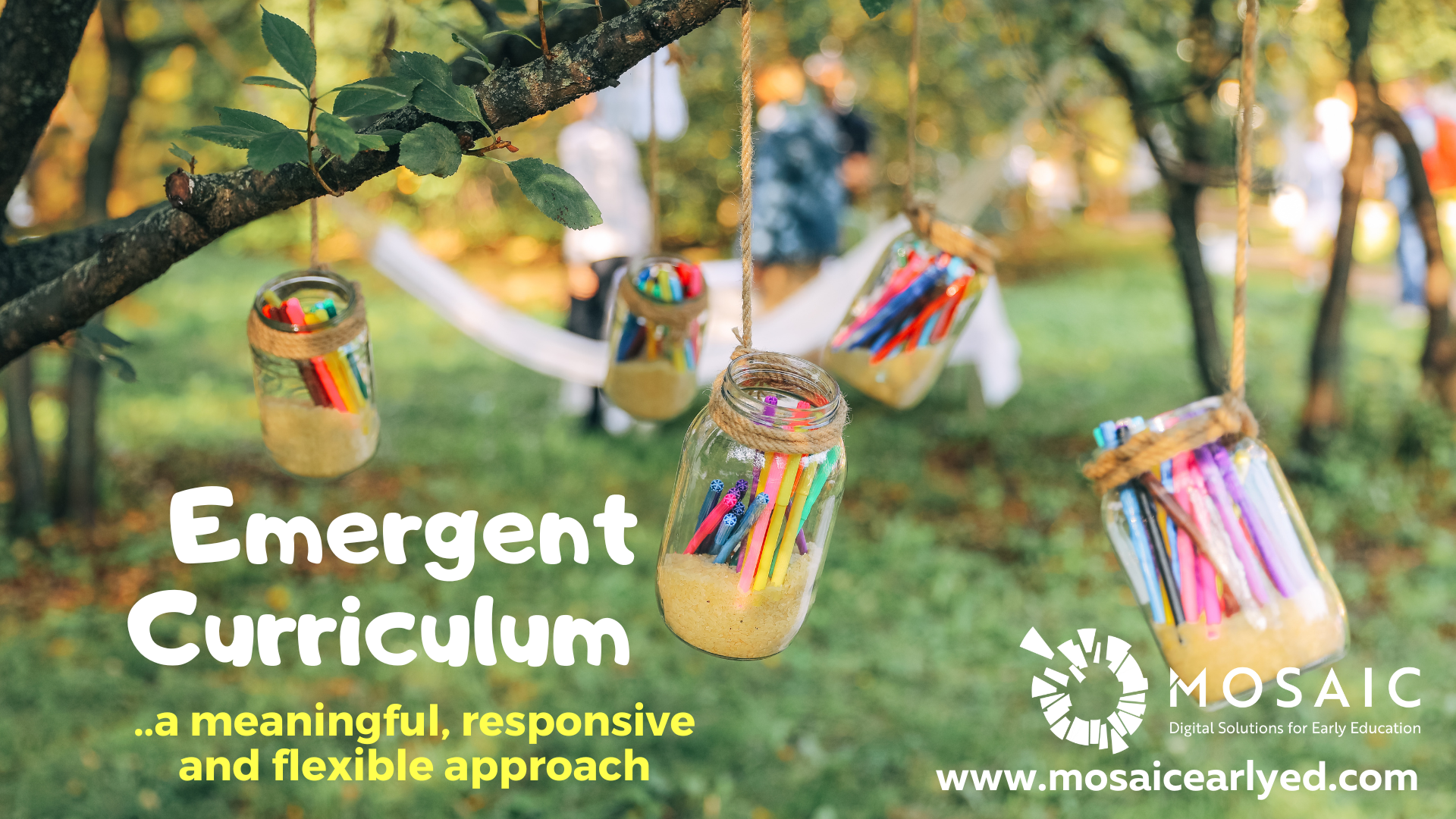Learning Stories
Programme Introduction
Learning stories are a meaningful method of assessment for learning in early childhood that capture the uniqueness of the individual child.
The ‘Creating Learning Stories’ programme will provide Educators with practical guidance on this wonderful pedagogical technique for early childhood education. The programme is presented in 5 short components - each one building on the learning from the one before and packed with practical examples. Participants will discover how to structure, compile, and use learning stories as a meaningful assessment tool, to engage parents and to showcase children’s individual strengths, interests and needs. Components are:
-
Assessment for Learning in Early Education
-
The Learning Story Approach
-
Techniques for Educators
-
Bringing Learning Stories to Life - multiple examples and formats
-
Engaging Parents with Learning Stories.
The Resource Documents section contains printable handouts to support the programme content and a Certificate of Participation is saved to the educator profile on completion.
*PLEASE READ YOUR 'NOTES FOR THE COURSE' BEFORE STARTING YOUR PROGRAMME*
Programme Content
- The importance of a child-centred strength-based approach to assessment for young children.
- An overview of the approach itself and the core components of a learning story.
- Exploring a range of practical pedagogical techniques including recognising learning story strengths and exploring different writing perspectives.
- A further range of sample learning stories for babies, toddlers and pre-school children to demonstrate all key learning points from the programme.
- Practical tips and strategies that the Educator can use when writing stories so that parents are more likely to engage with their child’s learning. and development.
Key Learning Outcomes
Educators will:
1. Understand the unique nature of assessment for learning in early childhood education and how this links to quality and practice frameworks;
2. Understand the learning story approach including core components, structure and different types of learning stories;
3. Appreciate how a combination of story types can be used together to represent multi-modal assessment for learning;
4. Develop a range of practical techniques and strategies for compiling meaningful learning stories;
5. Reflect on their own practice in this area;
6. Learn how to strengthen partnerships with parents by engaging them in their childrens learning and sharing their professional work with young children.
03 Hours
€25.00
Presentation with video/audio
Easy to follow components
Downloadable reference documents
Test multiple choice questions
Certificate of Completion
You may also like
A Suitcase Full of Stories - Book information feature
0.5 Hours
Free
'Implementing Aistear 2024'
2.5 Hours
€25.00
Emergent Curriculum (2nd ed. April 2023)
2.5 Hours




